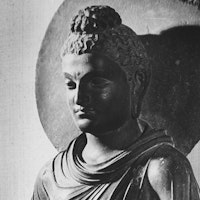The worthy person is grateful and mindful of benefits done to him. This gratitude, this mindfulness, is congenial to the best people.
Gautama Buddha

Grateful and Mindful
Topic: Gratitude
The unworthy man is ungrateful, forgetful of benefits [done to him]. This ingratitude, this forgetfulness is congenial to mean people… But the worthy person is grateful and mindful of benefits done to him. This gratitude, this mindfulness, is congenial to the best people.
Gautama Buddha, also known as Siddhartha Gautama, was a spiritual teacher and the founder of Buddhism. Born in the 6th century BCE in Lumbini, now modern-day Nepal, he was destined for greatness. At the age of 29, he renounced his luxurious life as a prince and embarked on a spiritual quest to find the ultimate truth about human suffering and the nature of existence.
After years of intense meditation and self-discipline, Gautama attained enlightenment under a Bodhi tree in Bodh Gaya, India, at the age of 35. He became the Buddha, which means "the awakened one" or "the enlightened one." Gautama Buddha spent the rest of his life teaching the Four Noble Truths and the Eightfold Path, which formed the core principles of Buddhism. His teachings emphasized the importance of overcoming desire and attachment to achieve liberation from suffering. Known for his compassion and wisdom, Gautama Buddha's teachings have had a profound impact on millions of people worldwide, inspiring them to seek inner peace and spiritual enlightenment. His legacy as a spiritual leader and philosopher continues to resonate and guide individuals on their spiritual journeys to this day.
Anguttara Nikaya
Wilson, Andrew, editor. World Scripture - a Comparative Anthology of Sacred Texts. Paragon House, 1991, p. 556 [Anguttara Nikaya i.61].

Gautama Buddha
Theme: Gratefulness

Anguttara Nikaya 1.61
The Anguttara Nikaya is the fourth of the four major Nikayas making up the Sutta Pitaka, or Basket of Discourses, belonging to the Pali Canon, the collection of texts that Theravada Buddhists regard as buddhavacana or “word of the Buddha.”
Gratitude
Another Anguttara Nikaya Quote
The Psychology of Gratitude, Robert A. Emmons
Resources
Related Quotes
Copyright © 2017 – 2026 LuminaryQuotes.com About Us